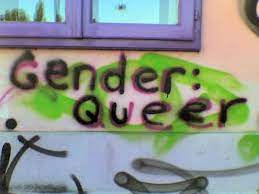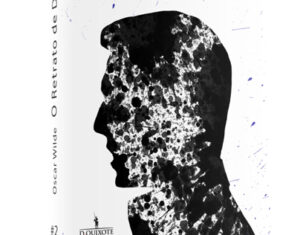Do you have obsessive thoughts about being attracted to someone of the same sex? If so, you may be experiencing homosexual OCD. This is a type of OCD that is specific to those who are struggling with unwanted thoughts and feelings about their own sexuality. It can be very difficult to live with this condition and there is help available. In this blog post, we will discuss what HOCD is, the symptoms associated with it, and how it can be treated.
Contents
About Homosexual OCD?
Homosexual OCD, or HOCD, is a type of Obsessive-Compulsive Disorder (OCD). In this individuals experience intrusive and distressing thoughts, images, and impulses related to their sexual orientation. The thoughts may involve fears of being gay or lesbian even though they do not identify as such. It can also include questioning one’s sexual orientation and obsessing over the idea of being attracted to someone of the same sex.
Homosexual OCD Symptoms And Signs
The symptoms related to homosexual OCD can vary from person to person, but may include:
- Obsessive thoughts about one’s own sexuality or gender identity.
- Intrusive images or thoughts about being attracted to someone of the same sex.
- Excessive worry and anxiety related to one’s sexual orientation or gender identity.
- Compulsive behaviors designed to “prove” one’s heterosexuality. Just as avoiding situations where there may be people of the same sex or reassurance-seeking from friends or family about one’s sexual orientation.
- Avoidance of people, places, activities, and conversations related to the topic of homosexuality.
- Feeling “stuck” in a cycle of obsessive thoughts and compulsive behaviors.
- Try to control these homosexual urges.
Common HOCD Obsessions
Here are some sexual obsessions develop in homosexual OCD:
- Obsessing whether or not they are actually homosexual.
- Fear of being attracted to someone of the same sex.
- Thoughts about acting out on same-sex attractions.
- Constantly worrying that others can tell they are gay by looking at them.
- Obsessing over the notion that one is, or will become, gay or lesbian.
- Fear of being labeled as “gay” by friends or family members.
- Excessive worrying about how one looks or acts in order to avoid looking “gay”
Common HOCD Compulsion
Now, check these compulsions people do to “prove” they are not gay:
- Repeatedly seeking reassurance from friends or family about one’s sexual orientation.
- Avoid homosexual people.
- Constantly monitoring physical and emotional responses to people of the same sex.
- Spending excessive amounts of time researching and reading about sexual orientation online.
- Try to prove in front of people that they are straight.
- patterns of arousal and attraction to others.
What Are The Causes Of Homosexual OCD?

The exact cause of homosexual OCD is not known. However, according to limited research here are some of the most probable factors:
- Genetic Factors: Research has suggested that OCD possibly passed down genetically from one family member to another. The HOCD may have a genetic component.
- Environmental Factors: The environmental factors, such as traumatic experiences or stressful situations, can trigger the development of homosexual OCD. It includes trauma bullying, sexual abuse, homophobic remarks, or other distressing events.
- Neurotransmitters Imbalance: Neurotransmitters imbalance has been associated with the development of OCD and it may play a role in the development of this condition as well. Certain neurotransmitters, such as serotonin, are responsible for regulating mood, behavior, and anxiety levels – all of which can be affected in people with HOCD.
Is HOCD Curable?
It depends on the individual and what type of treatment they decide to pursue. However, this condition can manage with proper treatment and support. The goal of treatment is to help people learn to manage their intrusive thoughts and compulsive behaviors. All of it in order to decrease their anxiety and improve their quality of life. With the help of therapy, medication, and other self-help practices. People can start to gain control over their obsessions and compulsions and live a healthier, more balanced life.
How To Deal With Homosexual OCD?

Here are some of the most effective ways to deal with homosexual OCD:
Therapy
CBT (Cognitive Behavioral Therapy) is an evidence-based therapy and a proven most effective treatment for HOCD. It involves working with a therapist to identify, challenge, and modify maladaptive thoughts and behaviors that are associated with HOCD.
Acceptance and Commitment Therapy (ACT) is a type of cognitive behavioral therapy. It encourages individuals to accept their thoughts, feelings, and sensations without judgment. This type of therapy helps people learn how to reframe intrusive thoughts related to homosexuality and develop healthier coping strategies.
Exposure and Response Prevention (ERP) is a type of cognitive behavior therapy. This is designed to help people confront their fears and build up their tolerance for anxiety-provoking situations. It works by gradually exposing the individual to their fears in a safe and controlled environment. It is an effective way of teaching them how to resist engaging in compulsive behaviors.
Medication
Your doctor also recommend medication to help manage the symptoms of HOCD. The most commonly prescribed medications for this condition include selective serotonin reuptake inhibitors (SSRIs) or tricyclic antidepressants, both of which can help reduce anxiety and improve mood.
Self-Help Practices
Self-help practices can be used to complement therapy and help manage HOCD symptoms. Some of the most effective self-help practices include:
- Mindfulness Meditation: This practice involves focusing on present-moment sensations, thoughts, and emotions. All of it in order to become more aware of them without judgment or reactivity.
- Journaling – Writing down intrusive thoughts and worries can help to gain insight and insight into one’s own thought patterns.
- Practice Gratitude – Focusing on the positive aspects of life and taking time to appreciate them can help to reduce fear-based thoughts associated with HOCD.
- Exercise – Most of the exercises or physical activity can release endorphins. This chemical is known to reduce anxiety and improve mood.
- Support Groups –Joining a support group can help to connect with other people who understand and share similar experiences.
These are just some of the most effective ways to manage homosexual OCD symptoms. However, it is important to remember that everyone’s experience is different and what works for one person may not work for another.
How Does HOCD Affect People’s Lives?
HOCD can be a debilitating condition that severely impacts a person’s quality of life. People with HOCD may experience difficulties in their relationships, social interactions, and daily activities. They may also struggle to concentrate on tasks or reach goals due to the intrusive thoughts and compulsive behaviors associated with this disorder. Additionally, people with HOCD may experience low self-esteem, anxiety, depression, and suicidal ideation. Hopelessness can set in when living with this condition, and it is important to seek help and treatment as soon as possible.
Conclusion
Homosexual OCD can be a difficult condition to understand and manage. However, it is possible to manage symptoms and lead a healthier life with the right treatment and support. People who are struggling with HOCD need to reach out for help from a mental health professional. It would be helpful to get the tools they need to cope.
Take care, and don’t forget that you are not alone! OCD is a mental health disorder characterized by obsessions and compulsions. If you have any queries regarding OCD treatment, ERP therapy experienced therapists at OCDMantra can help: Book a trial OCD therapy session


